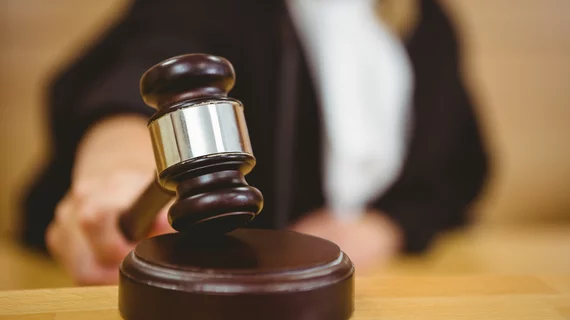Theranos exec found guilty on 12 counts of fraud, conspiracy
The chief operating officer of Theranos, the now defunct blood-testing company, was found guilty of 12 counts of wire fraud and conspiracy.
Ramesh “Sunny” Balwani, who was known as the No. 2 at Theranos to the company’s infamous CEO Elizabeth Holmes, was found guilty of two counts of conspiracy and ten counts of wire fraud through a multi-million-dollar scheme to defraud investors and patients. Balwani’s verdict comes after Holmes was already convicted on three counts of wire fraud and one count of conspiracy earlier this year.
Theranos, which was once hailed as one of the most innovative tech companies in the U.S., had a swift downfall after it was discovered that its proprietary blood testing technology did not work. In fact, the company’s executives allegedly misled investors into believing Theranos was conducting thousands of blood tests on its own equipment on real patients. Theranos attempted to create accurate and reliable blood testing processes with just a few drops of blood, rather than the conventional method of needles and several vials of blood.
The downfall of the company, as well as Holmes and Balwani, has been widely documented across the media.
“Six months after the guilty verdicts in the Elizabeth Holmes trial, this jury has concluded that Holmes’s business partner, Ramesh Balwani, also bears responsibility for defrauding investors in Theranos,” U.S. Attorney Stephanie M. Hinds said in a statement. "The jury concluded that Balwani also perpetrated fraud on unsuspecting patients.”
Balwani, 57, was employed at Theranos from September of 2009 through July of 2016. Theranos was founded by Holmes in 2003. Balwani worked in several capacities at the company, including as a member of the company’s board of directors, as its president, and as its chief operating officer. Evidence at trial suggested Balwani “conspired to commit wire fraud against investors between 2010 and 2015, conspired to commit wire fraud between 2013 and 2016 against patients who paid for Theranos’ blood testing services, and that he committed wire fraud against investors and patients,” the Justice Department said.
During trial, evidence was submitted that rebuked Balwani’s claims that Theranos developed a revolutionary and proprietary analyzer that went by several names, such as TSPU, Edison or minilab. Balwani and Holmes both claimed the analyzer could conduct a full range of clinical tests using small blood samples drawn from a finger stick. In addition, they portrayed these tests as more accurate and reliable than conventional blood draws, with faster results. The government presented that the pair knew the analyzer had issues with regards to accuracy and reliability, was slower than conventional methods, only performed a limited number of tests and could not compete with existing, more conventional blood testing methods.
The government further alleged Balwani used advertisements and solicitations to encourage patients to use Theranos’ testing services despite knowing the analyzer’s problems. With regards to investors, “Balwani represented to investors that Theranos would generate over $100 million in revenues and break even in 2014 and that Theranos expected to generate approximately $1 billion in revenues in 2015,” the Justice Department said. In reality, the company was using conventional machines from third parties, with negligible revenues in 2014 and 2015.
“Medical product fraud jeopardizes patient health,” FDA Assistant Commissioner for Criminal Investigations Catherine A. Hermsen said in the statement. “This defendant joins his partner in being found guilty of fraud related to diagnostic tests. The FDA will vigilantly investigate and bring to justice individuals and companies responsible for putting the public health at risk.”
Balwani’s sentencing hearing is set for Nov. 15, 2022. Holmes’ sentencing hearing is scheduled for Sept. 26, 2022.

